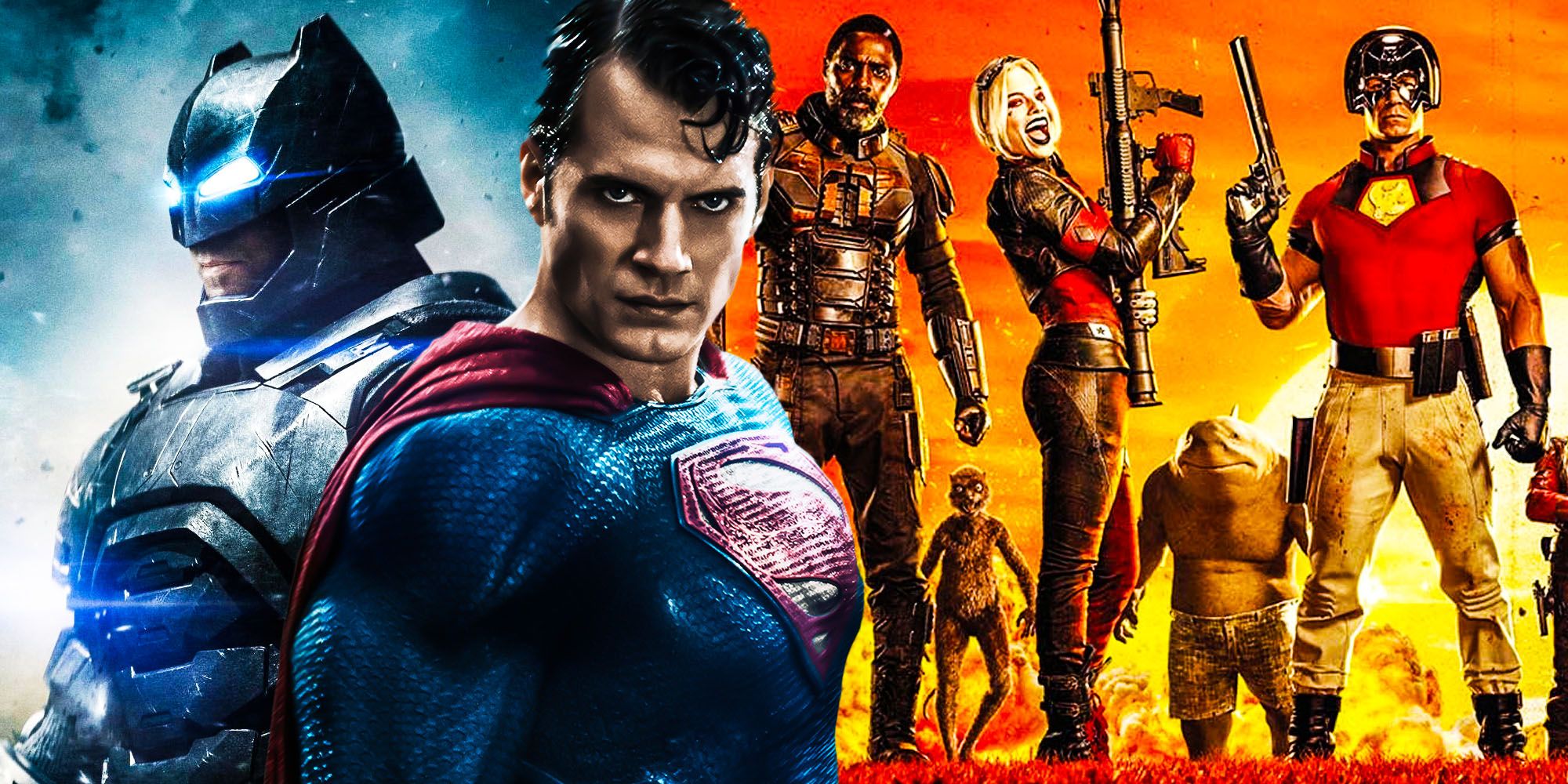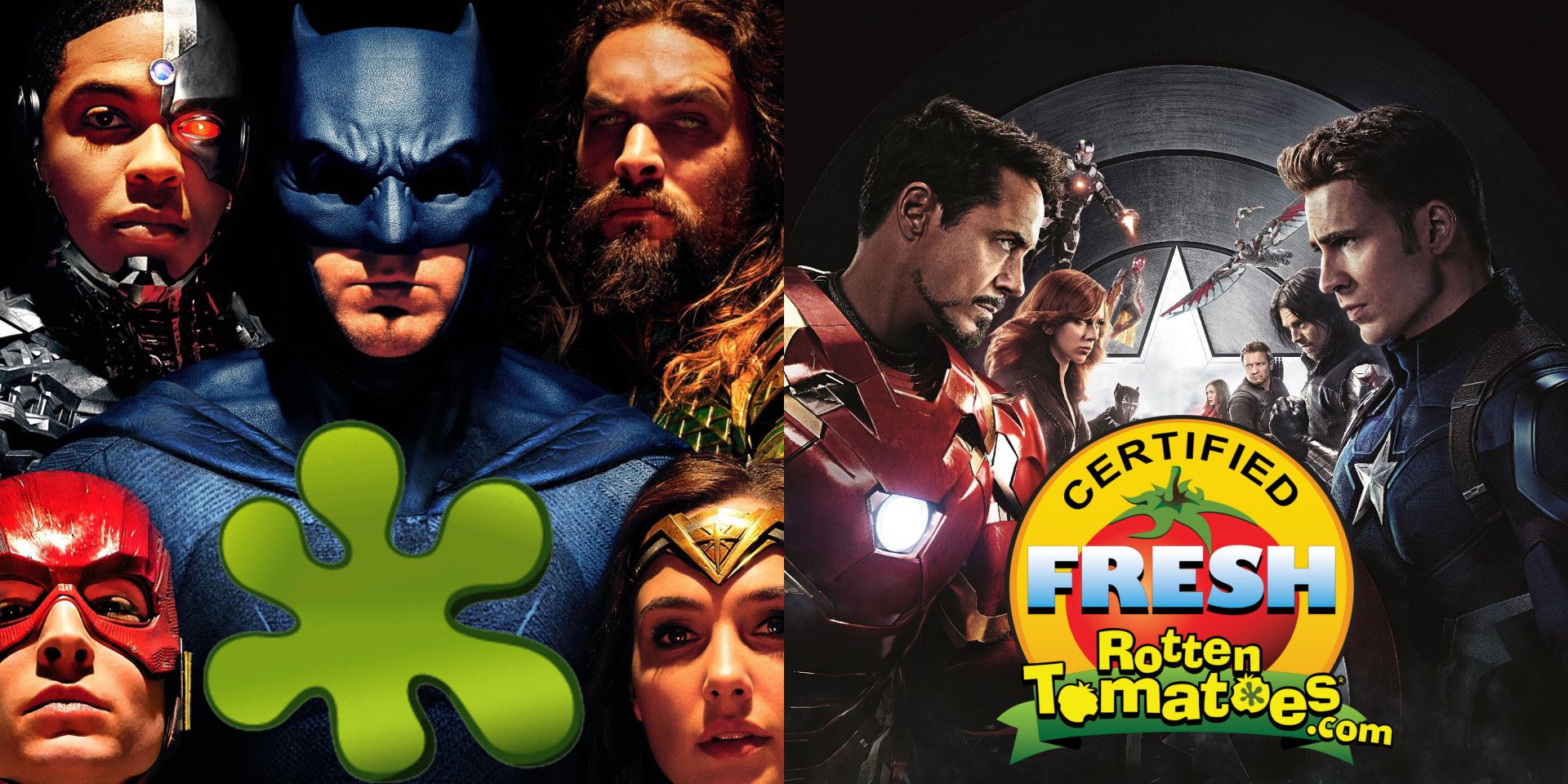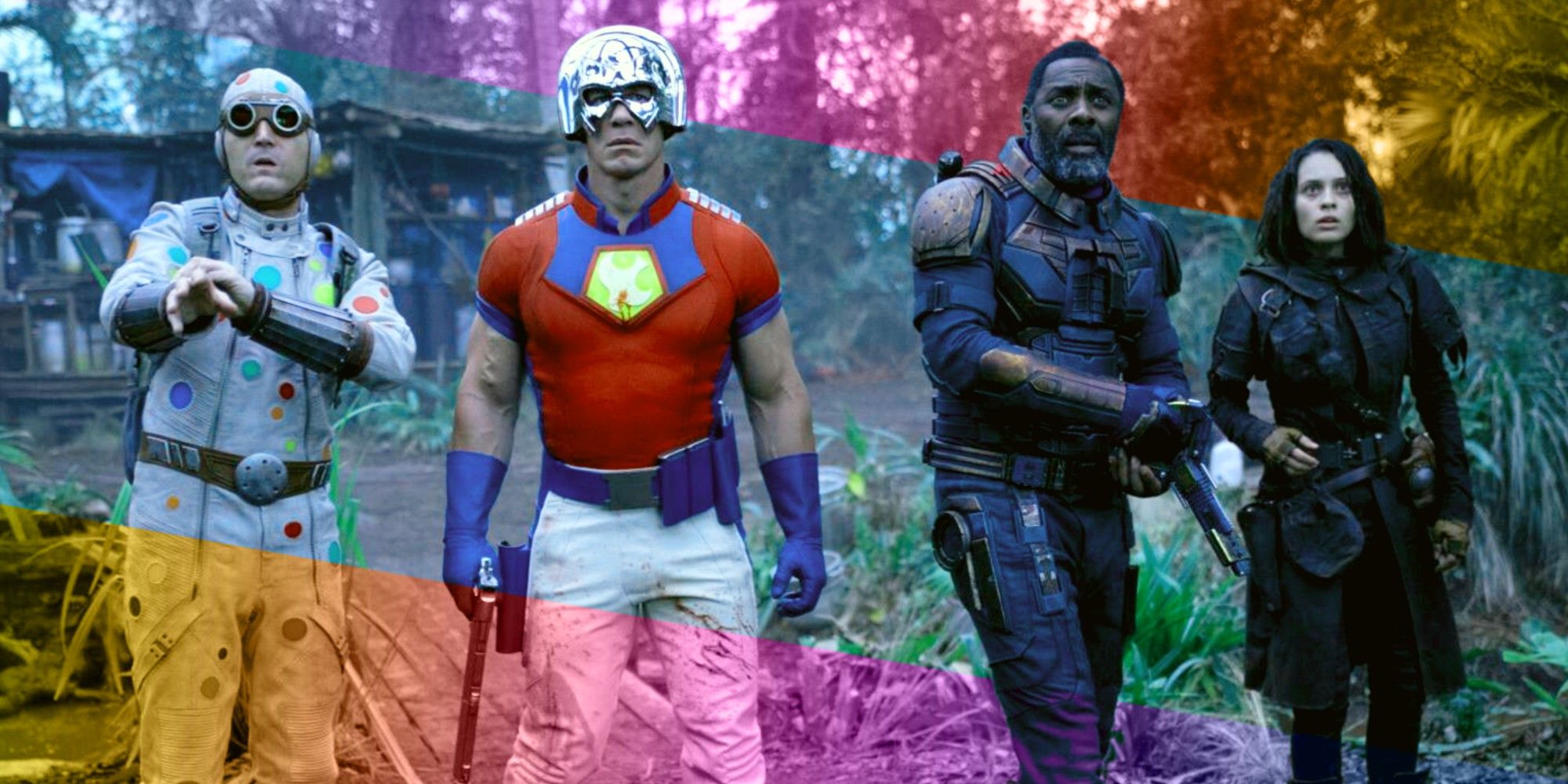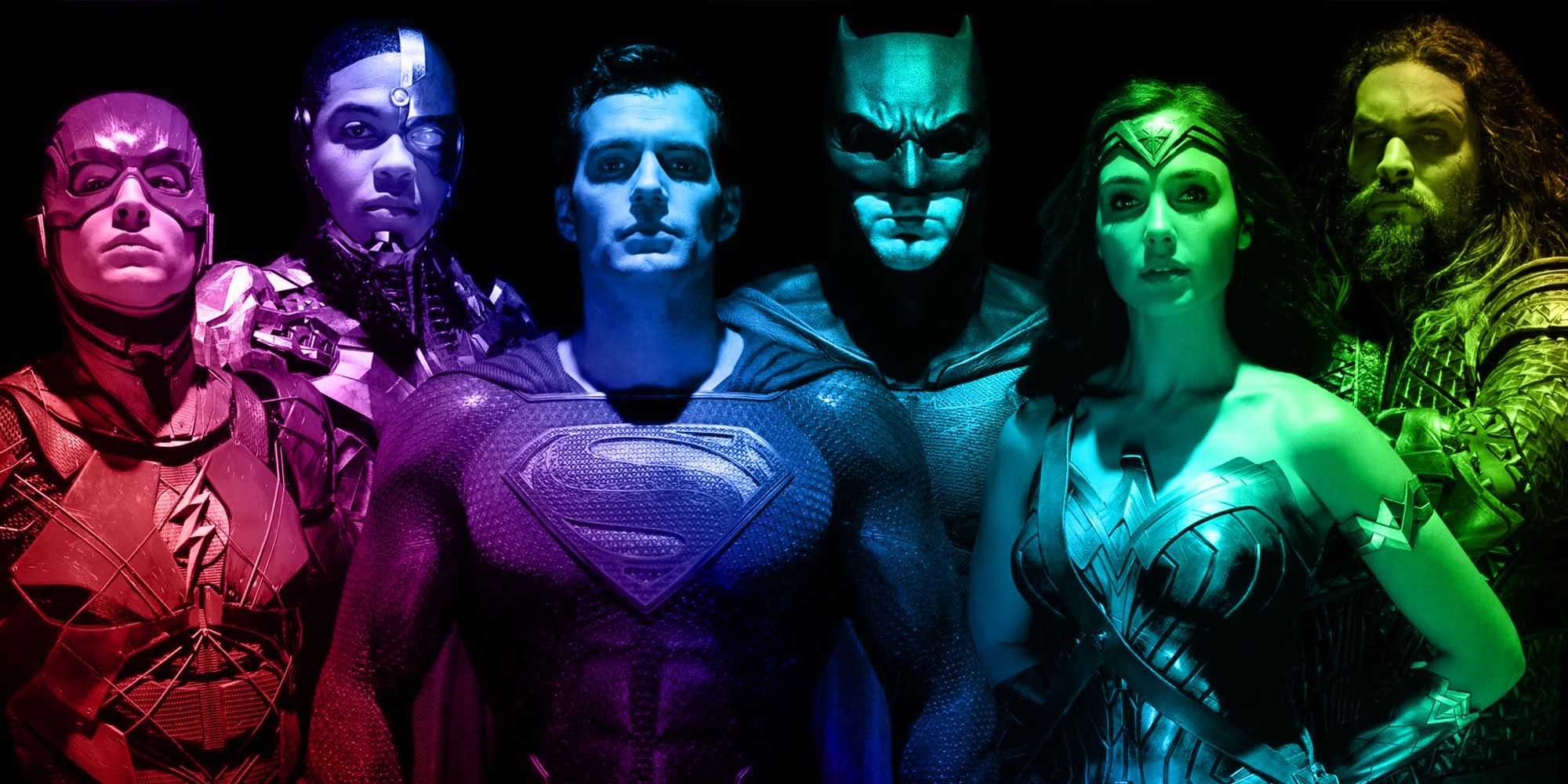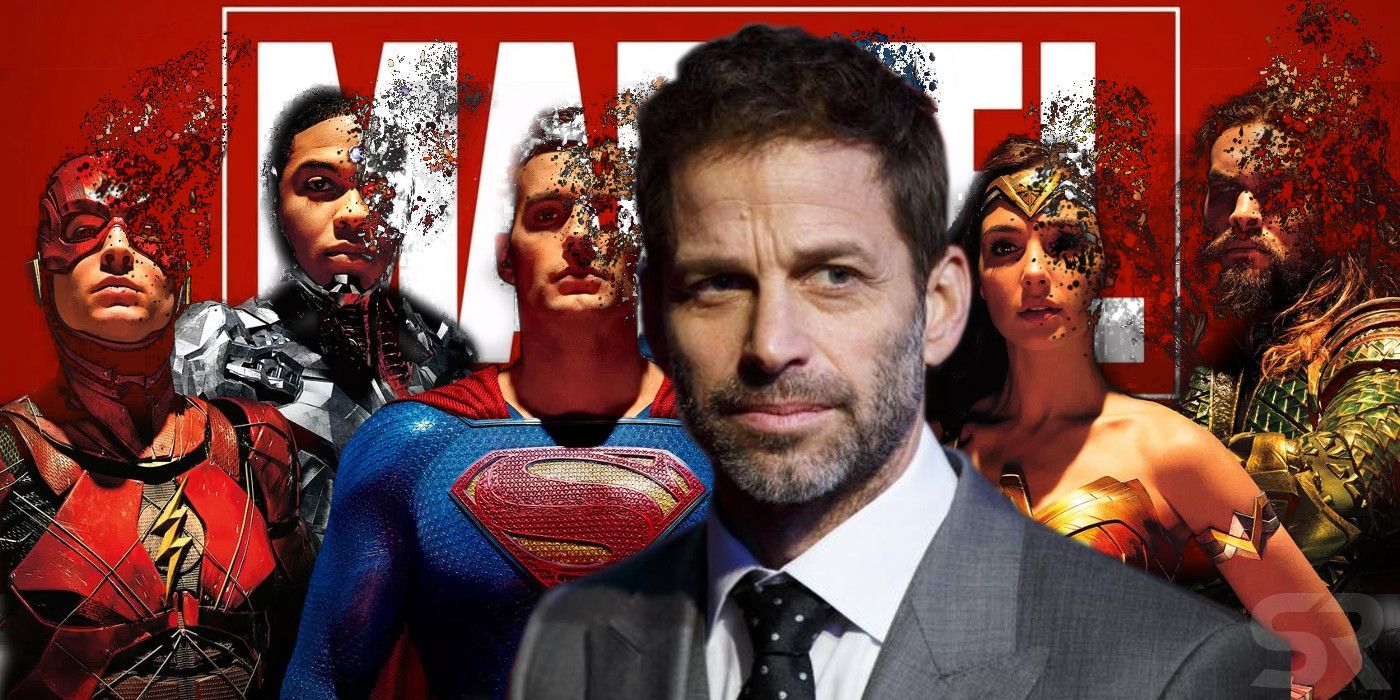Despite its positive reception and high Rotten Tomatoes score, The Suicide Squad is failing to meet expectations at the box office, proving Warner Bros.' extreme reaction to Batman v Superman: Dawn of Justice's initial reception was misguided. WB's plans for DC films have been all over the place due to their failure to learn the right lessons from Batman v Superman's Rotten Tomatoes score and box office, putting the DCEU into an extended state of disarray.
After Batman v Superman landed a shockingly low score on Rotten Tomatoes and saw a big drop-off in its second weekend at the at the box office (despite a record-setting opening weekend), WB panicked. They delayed the start of Justice League's principal photography, which was set to shoot immediately after Batman v Superman, for Zack Snyder and Chris Terrio to rewrite the script, while also ordering last-minute rewrites and reshoots on David Ayer's Suicide Squad to add more humor, starting a chain reaction the DCEU has been unable to recover from as WB continues to try to escape the shadow of the Snyder era.
Now, five years later, the consequences of that failed strategy are only becoming more apparent. WB executives at the time were envious of Marvel's flawless record on Rotten Tomatoes and consistent box-office hauls, not understanding that the MCU's consistently high review scores were only a symptom of the MCU's success, while the actual cause was Kevin Feige's franchise-building savvy. If they really wanted to learn the right lessons from Batman v Superman, they should have looked to how Feige was patient as he established the MCU's foundations and demonstrated confidence in his creatives and generated excitement for the larger MCU plan. Instead, WB is producing movies like The Suicide Squad, that generate positive reactions on release, but fail to justify their own budgets or drive excitement for what's coming next.
Focusing Too Much on Rotten Tomatoes Sabotaged the DCEU
Instead of focusing on building their film universe, DC tried to emulate Marvel movies, reportedly chasing the humor and style of Deadpool and Guardians of the Galaxy with the reshoots ordered for David Ayer's Suicide Squad, and later by literally hiring the man who directed the first two Avengers movies and shepherded the MCU through Phase 2, Joss Whedon, to turn Zack Snyder's principal photography into something more tonally in line with Whedon's MCU work.
Every single one of these tactics failed at getting WB what they really wanted. Suicide Squad still got lambasted by critics, scoring an even lower Rotten Tomatoes score than Batman v Superman, and then Justice League scored yet another Rotten score on the Tomatometer and was the DCEU's lowest-grossing movie to date when its most expensive movie yet and should have been the franchise's crowning achievement, bringing together DC's biggest heroes. Wonder Woman and Aquaman were well-reviewed and very financially successful, but both are ultimately products of the Snyder era WB was trying to escape.
The DCEU eventually put together a couple of back-to-back movies with high Rotten Tomatoes scores, but the box office had all but disappeared compared to the franchise's earlier installments. Shazam! and Birds of Prey are two of the DCEU's best-reviewed movies, but also represent the franchise's lowest-grossing movies so far (other than The Suicide Squad). In fact, while there's really no hard correlation between the DCEU's Rotten Tomatoes scores and box office, every single movie directed by or developed under the Zack Snyder era earned more at the box office than every single movie made since he left, other than Zack Snyder's Justice League, which didn't get a theatrical release (and still has no official performance numbers from HBO Max). It's hard to know how Wonder Woman 1984 would have been received at the box office if it didn't land in the middle of the pandemic, but it may not have made a huge difference since the conversation around that movie is highlighted by its massive Rotten Tomatoes drop after release. Wonder Woman 1984 may have been a boon for HBO Max, but otherwise there's not much to write home about and it's been mostly forgotten less than a year later.
The Suicide's Rave Reviews Didn't Save it From The Box Office
Then came The Suicide Squad. While hiring a former Marvel director didn't work for Justice League, Whedon arguably didn't have as much to work with since he took over late in production and wasn't able to craft the movie from the ground up, so Warner Bros. tried again with James Gunn. To be fair to WB and Gunn, they got exactly what they wanted in a Suicide Squad movie, drawing huge praise from critics and debuting to a 100% Rotten Tomatoes score before settling down to the DCEU's second-highest score at 91%, just below Wonder Woman. Unfortunately, the Rotten Tomatoes score didn't translate into box office success. Like Wonder Woman 1984, we'll never know what The Suicide Squad would have done financially if it weren't for the pandemic, although brushing the box office aside as an unavoidable casualty of coronavirus would miss some other important factors, namely the second-weekend box office drop.
While total box office never had much of a chance, which is why the film was simultaneously released on HBO Max, the dropoff from the opening weekend to the 2nd weekend is a proportional number, and The Suicide Squad's second-weekend drop wasn't just the highest drop in the history of the DCEU (even higher than the Batman v Superman second weekend drop that initially caused Warner Bros. to basically detonate their franchise plans), but also the highest second-weekend drop for any post-pandemic blockbuster. Despite the high Rotten Tomatoes score, The Suicide Squad actually got the exact same B+ CinemaScore as the original Suicide Squad (just above the B earned by Batman v Superman). CinemaScore isn't the most scientific tool, as it's just an in-person survey conducted randomly on a movie's opening night, but it is generally accepted as an indicator of a movie's reception by the general audience, and therefore word of mouth, which is a major factor in second-weekend box office drops.
Despite having the color and humor and especially the Rotten Tomatoes score WB was looking for all along, it still underperformed, even by pandemic box office standards. It's hard to condemn a movie's financial performance with so many circumstances at play outside the filmmaker and studio's control, but the only positive spin to be put on The Suicide Squad's performance is that it's doing well on HBO Max, which could be more even more profitable than theaters, but it's still doubtful WB is thrilled with The Suicide Squad's box office.
Tone Was Never the DCEU's Problem
Ever since the release of Batman v Superman, WB has been pushing for light-hearted movies and adding humor to their films, seemingly to more closely match the tone of the MCU as detractors have demanded for years. Zack Snyder says they were obsessed with making Justice League funnier. While nothing is inherently wrong with comedic tones, fans who had bought into the DCEU at that point were on-board with the tone and story being told so far, so the drastic shift away from that only alienated the franchise's biggest supporters while failing to grow a new audience enthusiastic for the new direction. In fact, it turns out Tone wasn't a problem for the franchise at all. After Todd Phillips struggled to get Joker off the ground, with WB infamously concerned about their ability to sell Joker pajamas, Joker went on to become one of the highest-grossing DC films yet, despite being one of the darkest. And the studio didn't even see all the profit, after selling off a large share of the film to outside financers.
Now, years later, Zack Snyder's Justice League is out, representing Snyder's original vision for Justice League, and it's even more confusing why Warner Bros. pulled the fire alarm and abandoned his direction. The movie is far lighter than Batman v Superman, and there's plenty of humor that lands even better than anything inserted by Joss Whedon's reshoots, while also adding Darkseid and some of the most impressive comic book movie moments, particularly Flash's time travel moment at the end of the final battle. Other than its four-hour runtime, the movie delivers on everything Warner Bros. wanted back in 2016. The only problem is, now it's no longer a part of their plan and Warner Bros.' CEO Ann Sarnoff came out immediately after the Snyder Cut's release to say they're not going to continue that story or do any more DC movies with Zack Snyder just as interest in his plan (the one WB failed to stand behind or promote back in 2016/2017) is at an all-time high.
WB Should Have Stuck to Their Original Plan (Or Any Plan)
Shortly after WB ordered the first of many alterations to Zack Snyder's Justice League plans and Suicide Squad's reshoots, it was already apparent the course corrections were too extreme. In June 2016, Zack Snyder's director's cut of Batman v Superman, the three-hour "Ultimate Edition" was released, clarifying plot details and adding more character development, and is almost universally considered the superior version of the film. Then in May 2017, Wonder Woman was released. Snyder was heavily involved in Wonder Woman's early development, bringing in Allan Heinberg to help him develop the story and having him write the screenplay before Patty Jenkins was hired as director. Jenkins worked closely with Snyder but made the film her own. Snyder as a producer, along with his wife, Deborah Snyder, and their producing partner Wes Coller, and Jenkins also brought several of Snyder's most frequent collaborators onto the crew. Wonder Woman would go on to become one of the highest-rated comic book movies of all time on Rotten Tomatoes and still holds the DCEU's title for top earner at the domestic box office.
In their desire to emulate the MCU's success with the DCEU, they ignored how Marvel actually started the MCU, particularly in how they handled their own early stumbles, particularly in Phase 1 with The Incredible Hulk's muted critical reception, or the criticisms of Iron Man 2's over-stuffed universe building plot. In fact, several MCU Phase 1 movies fell far short of the box office expectations held for the MCU today. Captain America: The First Avenger, Thor, and The Incredible Hulk are all still among the MCU's lowest earners, but Captain America and Thor would go on to see much more lucrative sequels (while Hulk is still caught in character-rights-limbo). Kevin Feige may have made some minor adjustments to account for lessons learned during Phase 1, but he didn't throw out the whole plan and call for massive overhauls to their approach. Even after Avengers: Age of Ultron got negative feedback for the confusing dream sequences and future setup, Marvel didn't decide to just abandon plans to bring Thanos into the MCU or forget about the Infinity Stones altogether as WB did with many of Snyder's story threads like the Knightmare timeline setup. The benefit of sticking to a plan, even if it isn't a home run, is that the larger universe is allowed to actually build into a larger payoff as we finally saw with Zack Snyder's Justice League. Continually changing focus loses that synergy and fails to build as much audience investment from film to film.
The indecision around how to move forward with the DCEU was worse than if they'd simply confidently moved forward with an imperfect plan. Marvel had announced their upcoming Phase 2 and 3 lineups leading to Avengers: Infinity War and Avengers: Endgame (announced simply as Infinity War: Part 1 and 2), officially confirming the whole thing was leading to Thanos and the Infinity Gauntlet in a giant crossover. Meanwhile, Zack Snyder had a plan charting out DC's own massive crossover finale defending the Earth from Darkseid and the Forces of Apokolips, but the nature of that plan was never made clear at the time, and the franchise was criticized for not following a plan like the MCU, all while a fairly detailed outline of the whole story had been sketched out on whiteboards in Zack Snyder's WB offices with Jim Lee and Geoff Johns. The fact that Darkseid was ever going to be in Justice League wasn't even known until it was revealed by a leaked storyboard months after the theatrical cut hit theaters. Even if WB still found it absolutely necessary to pivot away from Snyder without finishing his plan, they needed to show public commitment to another plan and move forward with that to instill confidence in the brand. Instead, it's been mixed messages and repeated false starts, announcements for films that never got off the ground, and changes in strategy such that now, five years later, the DCEU hasn't done anything to actually move past the events of Justice League, both in-universe and in real life.
Who's to know how things would have played out if WB stuck to their guns after Batman v Superman came out. Maybe minor changes still would have been necessary down the road but they could have avoided the drama and embarrassment of major fan campaigns like #ReleaseTheSnyderCut, #ReleaseTheAyerCut, and #RestoreTheSnyderverse serving as constant reminders of their 2016 mistakes. In fact, Snyder's entire arc would have been completed by now, with Snyder likely moving to other projects and leaving the future of the franchise to another filmmaker. As for The Suicide Squad, its box office haul may not be the worst problem in the world, provided it does its job to grow subscriptions for HBO Max, but Warner Bros.' decision to detonate the original franchise plans after Batman v Superman: Dawn of Justice to chase better Rotten Tomatoes scores, only got them better-reviewed movies that don't sell as many tickets as the original slate or generate demand for the sequels and spin-offs expected from a modern franchise film, Darkseid's impending invasion and Batman's post-apocalyptic Knightmare timeline be damned.

